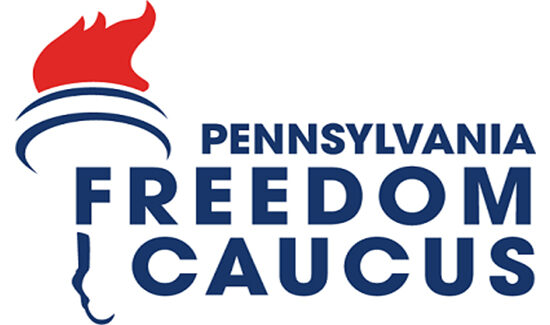“I believe every child of God deserves a shot here in the Commonwealth of Pennsylvania,” Gov. Josh Shapiro said last year, “and one of the best ways we can guarantee their success is making sure every child has a quality education.” Referring to the issue of school choice, he has said, “I’ve been very clear that I’m open to that concept that you described.”
Amen.
As Gov. Shapiro prepares his second budget address, let’s take him at his word.
Shapiro tried to pass Lifeline Scholarships, also known as the Pennsylvania Award for Student Success (PASS), which set aside funding for the poorest children trapped in the worst public schools – the bottom 15% based on statewide testing. Lifeline/PASS gave these kids’ parents the option of sending them to another school.
Unfortunately, the plan didn’t make it through the legislature. It passed with bipartisan support in the Senate, but strong opposition – spearheaded by Shapiro’s party in the House, especially Democratic Majority Leader Matt Bradford, with the help of teachers’ unions – led to a budget standoff. The 2023–24 budget remained unfinished until mid-December, almost six months after the constitutional deadline.
Wanting the governor to achieve his goal of helping “every child of God,” I offer this legislative wish list along with some unsolicited advice.
Shapiro should renew his call for a Lifeline Scholarship/PASS Program.
The test scores from failing state schools reveal some horrible realities. Some of these schools have proficiency rates of zero, meaning that none of their students can read or perform math at grade level. Where would a young man “graduating” from such a school go to find a job, let alone attend college?
That’s an outrage, and it’s heartbreaking.
Forcing any child to go to such a school – either because of her zip code or her parents’ inability to afford a private school – is not only immoral but also unwise: it’s a waste of taxpayer money.
Many citizens believe that all parents ought to have the right of school choice – the ability to pick a public, charter, cyber, private, religious, or homeschool for the children. But, as we know, the teachers’ unions oppose this concept.
Given this standoff, why can’t we agree on a reasonable compromise: giving at least the poorest children trapped in the worst schools a Lifeline? Rescuing those children and empowering those parents would also bring about accountability – because the very worst schools would be revealed.
Another way to empower parents and deliver accountability is through charter schools. However, local school boards determine whether a charter school can open (and stay open) and how many students can enroll. Many boards artificially limit the size of charters, and some refuse to permit any new charter schools – because they don’t like the competition.
About 30,000 children in Philadelphia (and 40,000 across Pennsylvania) are on charter waiting lists because of these artificial limits. These caps are yet another way to trap poor children, keeping them in failing or unsafe schools.
Shapiro should call on all school boards to lift these artificial limits and reopen the application processes. Further, he should propose legislation making it illegal for school boards to limit the size of a charter school – to force enrollment “caps” as a condition of these schools’ being approved or renewed.
A variation of charter schools are cyber charters. Pennsylvania cyber charter schools enroll nearly 70,000 students—three times as many as the entire Pittsburgh School District. Parents and guardians choose cyber schools for a variety of reasons. When traditional public schools were closed during the COVID-19 lockdowns, cyber schools—with professional, trained teachers and counselors – proved a godsend. Enrollment in cyber schools doubled between 2020 and 2022.
Special interests and teachers’ unions have circulated legislation in the Pennsylvania Senate that would decimate the cyber schools. House Bill 1422 would cut funding for cyber schools by up to 50%, effectively killing most, if not all, cyber charters and leaving up to 70,000 students – children of God, remember? – with nowhere to go. Shapiro should announce that he will veto this anti-student bill.
Meanwhile, additional safety measures are increasingly necessary for students attending traditional public schools, where most children are still enrolled. Most Philadelphia and Pittsburgh public schools – and several others across the state in places like Reading—are labeled as “dangerous” or “persistently dangerous.” No child should be forced to attend them.
The governor – a parent himself – should fight to help these children. Kids in “persistently dangerous schools” ought to be allowed to leave. These students can either move to another public school or a charter school or receive a scholarship to attend a safer private school. For the countless remaining students, Shapiro and lawmakers should require comprehensive school safety plans, with professional staffing and security – immediately.
Shapiro has rightly talked about the importance of offering careers and opportunities to high school graduates, breaking down barriers to employment, and lowering the cost of higher education. To that end, he should support more dual-enrollment programs for high school students in local community colleges or state-system universities and urge the development of similar opportunities at local private universities.
The pathway to a meaningful life continues after school, and the governor must do more to clear the way for graduating students. Pennsylvania state agencies oversee 2,400 state-required licenses. Graduating students face unnecessary barriers to finding work, obtaining occupational licenses, or starting businesses. To keep and attract young minds and stop Pennsylvania’s pervasive brain drain, Shapiro should vow to eliminate unnecessary licenses and reduce Pennsylvania’s regulations.
As the governor prepares his annual address and sets his priorities, he should be mindful of what he called “unfinished business” from 2023. More importantly, he should recall his own words.
A leader who frequently invokes “every child of God” will learn from his first-year missteps, one hopes, and use his second budget to reprioritize Pennsylvania’s children. Our kids need access to good schools – not in two, five, or ten years, but today.
We should empower parents to find and choose good schools for their children. And we, as taxpayers, deserve accountability from our schools.
Shapiro can negotiate with Republicans in the Senate – most will help him pursue these goals. And, yes, he can fight for Democrats’ priorities – like more money for public schools—to entice them to compromise on school choice.
He will find reasonable Republicans and sympathetic parents if he fights to empower families and rescue children trapped in failure.
Shapiro’s budget address – and, more importantly, his budget – will be successful if he follows his own stated priorities of fighting for our children’s success: “I think education is key to that. Public safety is key to that. Growing our economy is key to that.”
Amen. Now, in addition to the words, we need the action.





